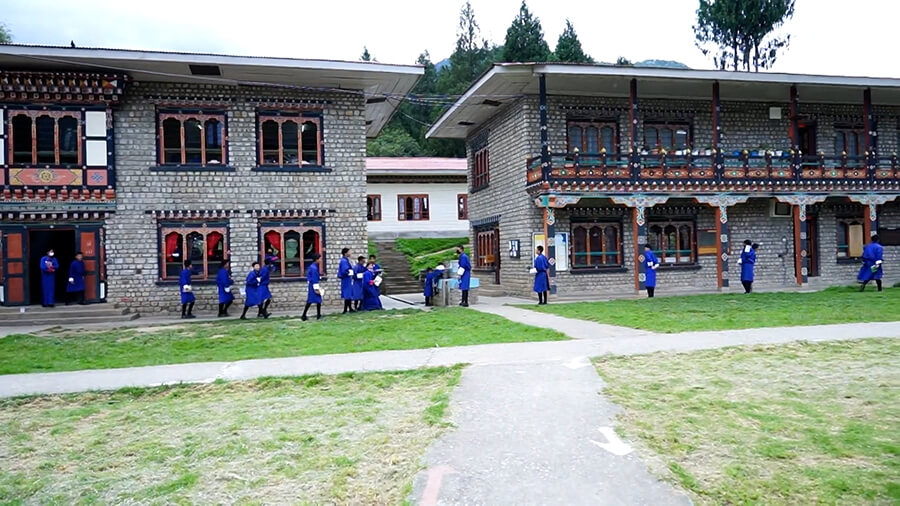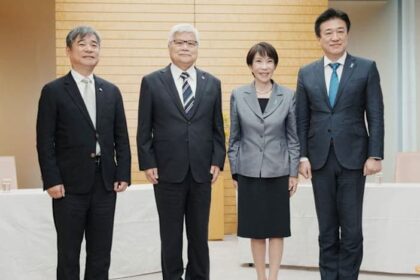AI Tools Transform Learning in Bhutanese Schools
Artificial intelligence (AI) is rapidly reshaping education in Bhutan, with students and teachers navigating both the opportunities and challenges that come with this technological shift. From popular generative AI tools like ChatGPT, Gemini, and Co-Pilot to specialized platforms such as Eduten, AI is now a regular part of the academic landscape in the Himalayan kingdom. As Bhutan expands its digital learning initiatives, the debate intensifies over how best to harness AI’s benefits while safeguarding critical thinking, creativity, and academic integrity.
How Are Students Using AI in Their Studies?
Students across Bhutanese secondary schools report using AI tools to verify answers, generate ideas, and better understand complex subjects. Sherab Lhaden, a student at Motithang Higher Secondary School (MHSS), describes how AI helps her clarify chemistry and mathematics concepts, allowing her to rewrite information in her own words. For many, AI is a valuable resource when teachers or peers are unavailable, especially outside school hours.
AI-powered platforms are also making inroads at the primary level. Following a successful pilot, Bhutan’s Ministry of Education and Skills Development (MoESD) is rolling out Eduten, an AI-driven math learning platform, to all Grade 4 students nationwide. The pilot, supported by UNICEF, showed an 11.2 percentage point improvement in numeracy skills and high student engagement. Teachers noted reduced workloads thanks to automated analytics and personalized learning features, allowing them to better support struggling students.
Balancing Benefits and Risks
While students appreciate AI’s ability to streamline research and manage heavy workloads, concerns persist. Some worry that overreliance on AI could erode independent thinking, memorization, and creativity—skills essential for exams and lifelong learning. “AI can make students overly reliant and less inclined to think independently,” Sherab cautions, echoing a sentiment shared by many of her peers.
Others point to the risk of inaccurate information and the temptation to use AI for completing assignments undetected. A Class XI student from MHSS notes that while AI is helpful, it is not a daily necessity, and its outputs must be critically evaluated. Students at Lungtenzampa Middle Secondary School (LZMSS) report that AI often provides more detailed answers than simple online searches, but follow-up clarifications can sometimes be confusing.
Teachers Face New Challenges and Opportunities
Teachers in Bhutan are adapting to the AI era with a mix of optimism and caution. Tshering Lham, vice principal of LZMSS, highlights the difficulty of monitoring AI use in schools and the urgent need for robust policies. Teachers are striving to educate students on responsible AI use, emphasizing that technology should refine—not replace—original work. Geography teacher Tshering Dorji at MHSS requires students to submit multiple drafts and provides feedback to encourage deeper engagement with material, rather than wholesale content generation by AI.
However, the lack of clear guidelines and detection tools remains a concern. Teachers worry that heavy workloads and large class sizes make it difficult to spot AI-generated assignments, especially as detection software varies in effectiveness. Recent studies show that while advanced tools like Pangram can outperform human experts in identifying AI-generated text, no solution is foolproof. Human oversight and AI literacy are essential to avoid false accusations and ensure fair assessment.
Ethical Use and Policy Development
Students and teachers alike stress the importance of education on ethical AI use, including issues of plagiarism, copyright, and privacy. Some schools have begun discussing these topics in IT classes, but comprehensive guidance is still lacking. In 2024, UNESCO released AI competency frameworks for students and teachers, aiming to help countries like Bhutan implement policies for ethical and effective AI integration in education.
AI Literacy: A New Essential Skill
Globally, educators are recognizing the need to teach not just with AI, but about AI. Skills like prompt engineering—crafting effective queries for AI tools—are becoming critical for both teachers and students. According to recent research, prompt engineering enhances instruction, reduces teacher workload, and prepares students for future-ready learning. It also intersects with digital citizenship, metacognition, and computational thinking, making it a pillar of modern education.
Initiatives in other countries, such as Michigan’s partnership with the AI Education Project, offer models for scaling AI literacy through teacher training and curriculum development. Bhutan’s own efforts, including the nationwide rollout of Eduten and alignment with the national curriculum, signal a commitment to digital transformation while respecting local values and context.
Preserving Creativity and Critical Thinking
As AI becomes more embedded in classrooms, educators warn against letting technology supplant essential human skills. Teachers like Dorji Tenzin at MHSS note that excessive AI reliance can hamper problem-solving, collaboration, and creativity. Internationally, universities are experimenting with AI-powered roleplaying bots to help students practice real-world skills, but experts emphasize that technology should support—not replace—effective pedagogy.
Bhutan’s unique philosophy of Gross National Happiness (GNH) and its commitment to sustainability offer a distinctive lens for integrating AI ethically. Thought leaders suggest that by aligning AI policies with cultural values, Bhutan can become a model for responsible, mindful technology use in education and beyond.
In Summary
- AI tools like ChatGPT and Eduten are increasingly used by Bhutanese students and teachers, offering both benefits and challenges.
- Students value AI for research and learning support but worry about overreliance, loss of creativity, and academic integrity.
- Teachers face difficulties in monitoring AI use and detecting AI-generated work, highlighting the need for clear policies and training.
- UNESCO and other organizations are promoting AI literacy and ethical use frameworks to guide responsible integration in education.
- Bhutan’s approach, rooted in its cultural values, aims to balance innovation with the preservation of critical thinking and creativity.












